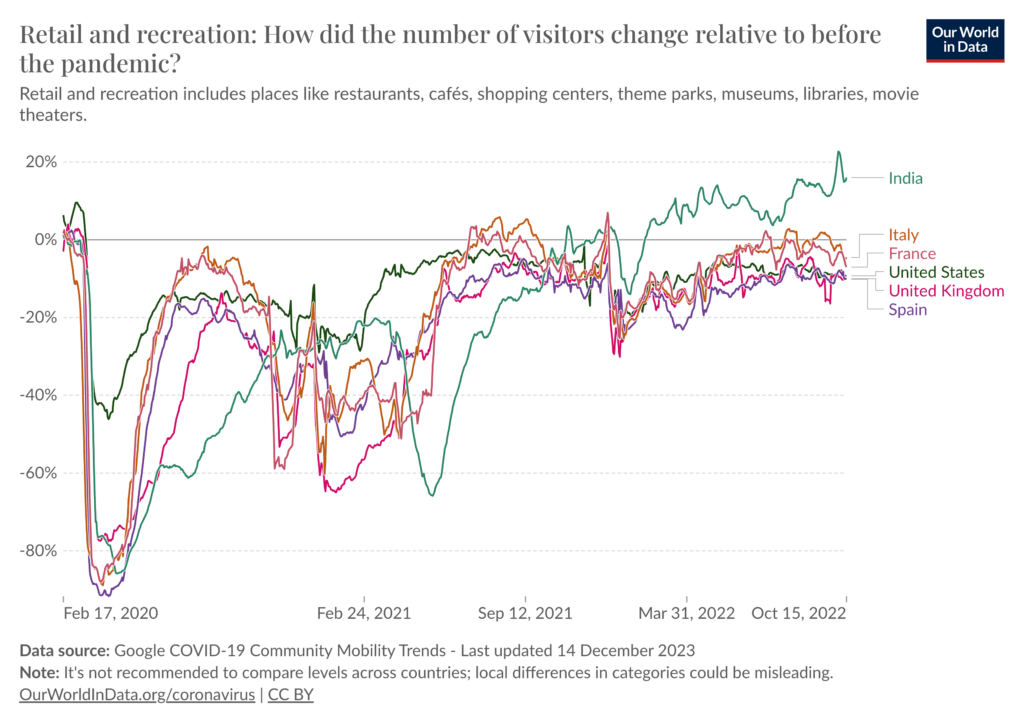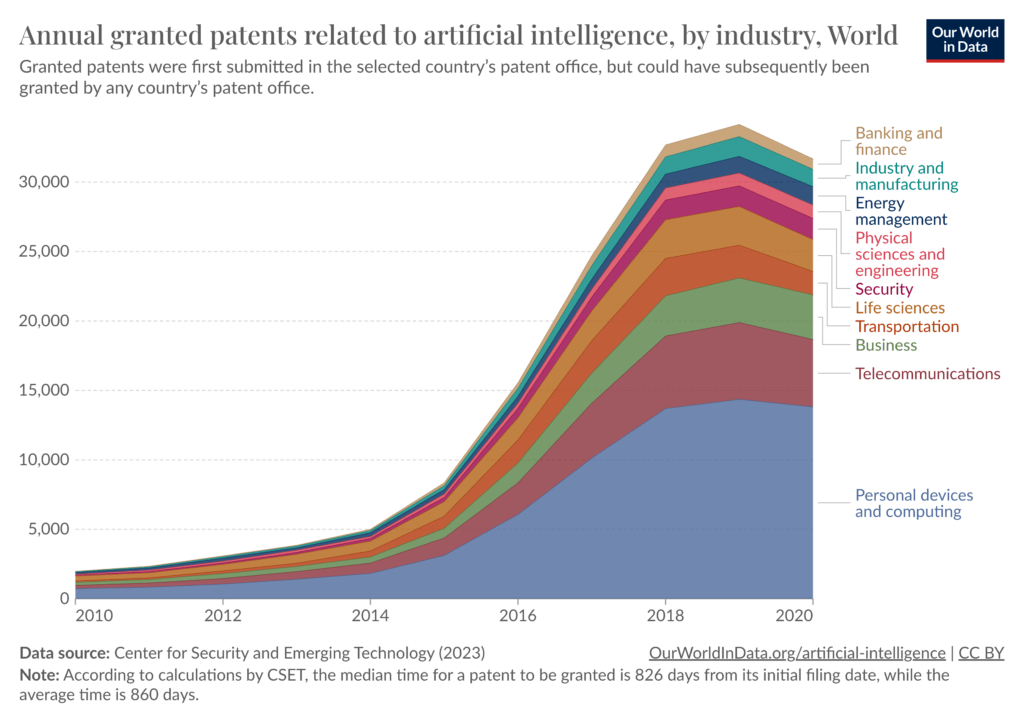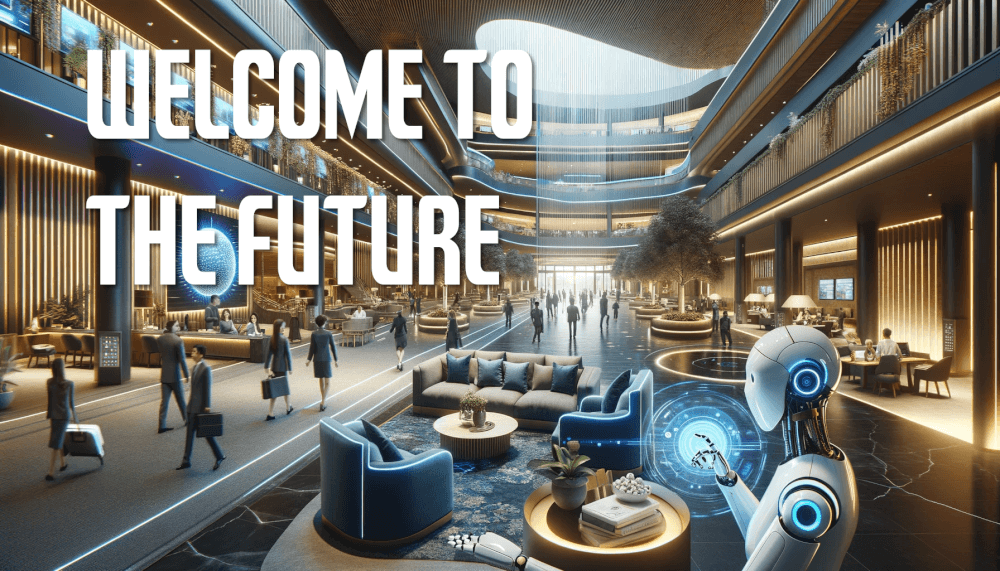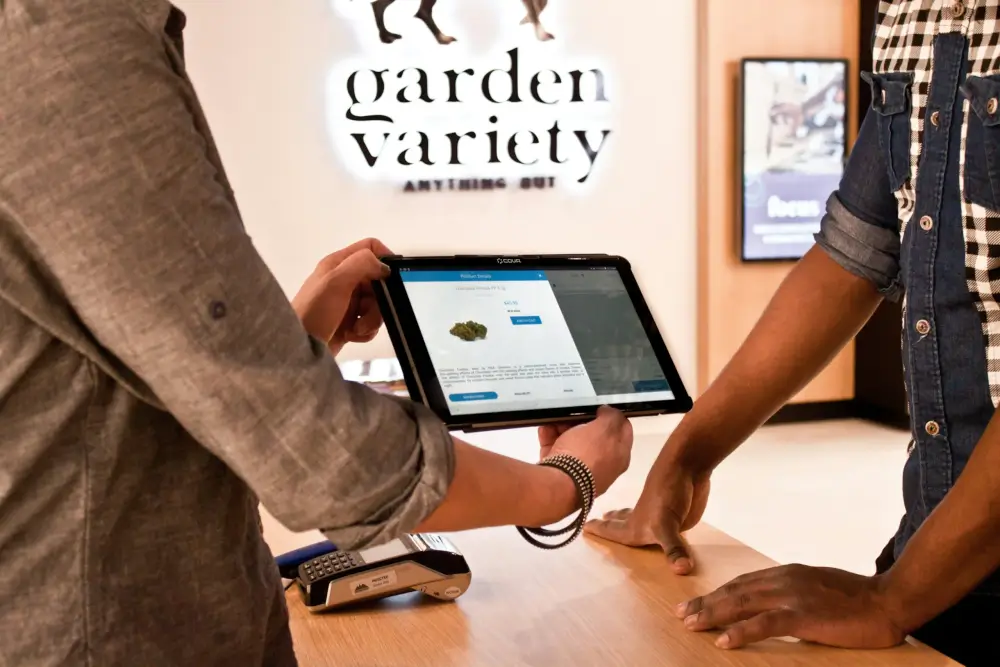How I Recently Saw The Future
Imagine this: I recently had the opportunity to stay at a high-end spa hotel, and the experience was a real eye-opener regarding how digitalization has transformed the hospitality industry. As soon as I arrived, I noticed how seamlessly technology was integrated into every aspect of the hotel.
The check-in process was the first hint of this digital shift. Instead of the usual front-desk routine, I was greeted by a staff member with a tablet. The check-in was done digitally, within minutes, and without any paperwork. It felt more personal yet efficient, as the staff member was able to engage in a conversation while handling the formalities.
Once checked in, I was guided to my room, which was another showcase of technological integration. The room was equipped with a smart system controlled by a tablet. I could adjust the lighting, room temperature, and even the window blinds all from this single device. The room also had a voice-controlled assistant that provided information about the hotel’s services and the local area.

The real highlight, though, was the spa itself. Upon entering, I was given a smart wristband that served as my key to a personalized wellness experience. This wristband tracked my activities in the spa, suggested wellness routines based on my preferences, and even allowed me to schedule treatments without needing to go back to the reception.
Dining at the hotel was another digital experience. The restaurant offered digital menus on tablets, with an option to filter meals based on dietary preferences. I found this particularly useful, as I have some dietary restrictions.
But how did we get here?
Let us first take a look back
The hospitality industry has undergone a significant transformation in recent years, with digitalization playing a crucial role in this change. The internet evolved into a mainstream platform through rapid technological advancements and widespread adoption, enabling the use of diverse digital services and transforming how we communicate, access information, and conduct business globally. The use of cellphones, the internet, and modern devices like tablets has been the prerequisites for this development.
According to a report by Statista, the global hospitality market size reached 3486.77 billion U.S. dollars in 2020 and was forecast to grow to 4132.5 billion U.S. dollars in 2021. One of the main ways this industry is currently looking to streamline its goods and services is by digitalizing. Increased online food delivery has facilitated the digitalization of the restaurant industry, and now accommodation services are following suit.
When executives in the global travel and hospitality industry were surveyed on the main business priorities of travel and hospitality companies in 2020, roughly half of respondents stated that “new technology to better serve customers and/or suppliers” was a business priority. When those same executives were asked whether their company had an individual or team directly responsible for digital transformation, 84 percent stated that they did have someone responsible for digital transformation in 2020.
The hospitality industry has been quick to adopt digital technologies to improve customer experience and streamline operations. For instance, hotels are using mobile apps to allow guests to check-in and check-out, order room service, and access hotel information. The use of digital technologies has also enabled hotels to personalize their services and offer customized experiences to their guests.

Digital Transformation in the Hospitality Sector
The hospitality sector, a dynamic and evolving industry, has witnessed a significant shift in recent years, propelled by digital transformation. This shift isn’t just about upgrading systems or adopting new technologies; it’s a complete overhaul of how the hospitality sector operates and interacts with its customers. From Asia-Pacific’s pioneering efforts to the integration of cutting-edge technologies, this sector stands at the forefront of a digital revolution.
Digital Transformation Trends in Hospitality
Asia-Pacific Leading the Digital Charge
While doing my research, I discovered that that the Asia-Pacific region is not just participating; it’s leading. Struck first by the pandemic, businesses here were compelled to adopt digital strategies swiftly. Now, a significant 44% of executives in this region focus on improving analytics capabilities, while 30% consider themselves ahead of the curve. This proactive approach is a beacon for the global hospitality industry, demonstrating the vital role of digital transformation in not just surviving but thriving in today’s market.

Integration and Digital Engagement: The New Norm
2023 marked a year of substantial digital integration in the hospitality sector. Hotels and restaurants began embracing technologies to streamline operations, enhance customer experiences, and drive efficiency. This evolution is a clear indicator of the industry’s commitment to adopting digital strategies that not only meet current needs but also pave the way for future growth.
The Role of Emerging Technologies
Innovative Leap with AI and Robotics
Artificial Intelligence (AI) and robotics are reshaping the hospitality landscape. These technologies have extended their reach into various aspects of the sector, from robot concierges to AI-powered customer service chatbots. Their integration is revolutionizing customer service, reducing operational costs, and providing unprecedented efficiency. Learn more about the potential of machine learning in powering tomorrow’s innovations in this insightful article from Sayge Company here.

Virtual Reality and IoT: Creating New Experiences
Virtual Reality (VR) and the Internet of Things (IoT) are not just buzzwords; they are essential tools in the digital transformation toolkit of the hospitality industry. VR’s ability to offer virtual tours and IoT’s provision of integrated services like automated door locks and smart room controls are just the tips of the iceberg in terms of their potential applications.
Point of Sale (POS) Systems: Streamlining Operations
The emergence of advanced POS systems has been a game-changer, particularly for small to medium businesses in the hospitality sector. These systems not only facilitate seamless transactions but also enhance the overall customer experience. Discover how Sayge Company’s POS system is elevating retail for small to medium businesses.
Business Model Innovation in Hospitality
Digital transformation compels hospitality businesses to rethink their business models. The shift towards digitalization isn’t just about adopting new technologies; it’s about reimagining how to create and deliver value to customers. This involves a holistic view of the business, integrating various elements like revenue sources, partnerships, and customer engagement strategies.
Case Studies: Real-World Examples of Digital Transformation
Accor Hotels: A Pioneer in Digital Transformation
Accor Hotels, one of Europe’s largest hospitality brands, exemplifies successful digital transformation. Faced with competition from digital players like Airbnb, Accor shifted from a real-estate based model to a digital-first approach, diversifying their services and expanding their online presence. Their strategies include divesting real estate assets, investing in tech startups, and rolling out a mobile integrated booking system.
Restaurants Embracing Digital Innovations
The restaurant industry has seen a rapid adoption of digital technologies. Contactless ordering, branded apps, and self-service kiosks are now common. These technologies have been crucial for adapting to changing customer preferences and operational challenges, especially during the pandemic.
Challenges and Considerations in Digital Transformation
While digital transformation offers numerous benefits, it also presents challenges. Key concerns include maintaining a balance between technology and the human touch, addressing security and privacy issues, and managing the costs of technology adoption. Hospitality businesses must carefully evaluate which technologies align best with their goals and customer needs.
Enhancing Guest Experiences through Digitalization
Personalization at the Forefront
Digital transformation enables unprecedented personalization in the hospitality sector. From AI-driven recommendations to IoT-enabled room customizations, technology makes it possible to tailor each guest’s experience to their preferences. This personalization not only enhances guest satisfaction but also builds loyalty.
Leveraging Big Data for Strategic Insights
Data-Driven Hospitality Management
The use of big data analytics in the hospitality sector allows for a deeper understanding of customer behavior and market trends. This insight is crucial for strategic decision-making, from optimizing pricing strategies to tailoring marketing campaigns.
The Role of Mobile Technologies in Hospitality
Seamless Connectivity with Guests
Mobile technology has become integral to the hospitality experience. From mobile check-in and check-out to apps that allow guests to control room features, mobile technology offers convenience and enhances the overall guest experience.
Sustainable Practices through Digital Innovations
Eco-Friendly Operations
Digital transformation also plays a key role in promoting sustainability in the hospitality sector. Energy-efficient IoT devices, digital document management, and AI-driven resource optimization are just a few examples of how technology can support eco-friendly practices.
Overcoming Challenges in Digital Adoption
Adapting to the Digital Age
The journey towards digital transformation is not without its challenges. Issues such as technology integration, staff training, and maintaining the human element in digital interactions need to be addressed. Hospitality businesses must navigate these challenges to successfully adopt digital technologies.
Pioneers of Digital Innovation: Success Stories in the Hospitality Sector
Marriott International
Innovative Use of IoT and Mobile Technology
Marriott International is a prime example of successful digital transformation. They have implemented Internet of Things (IoT) technologies in their rooms, allowing guests to personalize their stay through a mobile app. This app enables guests to control room features like temperature, lighting, and even TV, providing a highly personalized experience. Marriott’s adoption of digital check-in and mobile key technology also exemplifies their commitment to integrating digital advancements.
Hilton Hotels & Resorts
Smart Room Technology and Digital Keys
Hilton has pioneered the introduction of smart rooms that enable guests to use their smartphones for various functions, including as a room key. They have also developed a digital check-in system, allowing guests to select their rooms digitally before arrival. These innovations have significantly enhanced customer convenience and streamlined the hotel’s operational efficiency.
Accor Hotels
Total Digital Overhaul and Platform Diversification
Accor Hotels underwent a complete digital transformation by shifting from a traditional hotel management company to a digital hospitality platform. They diversified their offerings by investing in various digital services like onefinestay (a luxury rental platform) and John Paul (a concierge service). Accor’s transformation reflects a strategic shift to address the digital economy and changing consumer behaviors.
MGM Resorts International
Data-Driven Customer Experience
MGM Resorts International leveraged big data and analytics to enhance customer experiences and streamline operations. By analyzing customer data, they’ve been able to personalize marketing efforts and tailor services to individual guest preferences, significantly improving customer satisfaction and loyalty.
Domino’s Pizza
Although not a hotel or resort, Domino’s Pizza in the hospitality sector serves as an inspiring example of digital transformation.
They revolutionized the food service industry by focusing on technology-based ordering systems, including mobile apps, social media, and even voice-activated systems. This approach not only improved customer experience but also significantly increased their sales and market share.
OYO Rooms
App-Based Operations and Customer Engagement
OYO Rooms, a hospitality chain of leased and franchised hotels, homes, and living spaces, leveraged a mobile app to manage bookings and customer engagement effectively. Their digital-first approach has allowed them to scale rapidly, offering budget-friendly accommodations with a seamless customer experience.
These examples highlight the diverse ways digital transformation can be successfully implemented in the hospitality sector, from enhancing customer experience with smart technologies to leveraging big data for personalized services and operational efficiency.
Future Outlook: The Evolving Landscape of Hospitality
Embracing Continuous Innovation
The future of the hospitality sector is closely tied to ongoing digital innovation. Staying ahead of technological advancements and continuously adapting to changing customer expectations will be key to success in this rapidly evolving industry.
Green Initiatives and Sustainability
Many hotels and restaurants are focusing on sustainable practices, such as eco-friendly packaging, energy-efficient lighting, waste reduction, and the elimination of single-use plastic products. These efforts are not just limited to operations but extend to guest experiences, like offering eco-tours and sustainability-focused amenities.
Digitalization and Contactless Services
he hospitality industry is increasingly adopting contactless technologies for a seamless, safe, and convenient guest experience. This includes mobile check-ins, touchless payment options, and the use of chatbots and AI for personalized information and recommendations. An example of this is the integration of facial recognition technology for accessing services and smart hotel rooms controlled via mobile apps or voice commands.
Adoption of Multifunctional Spaces
Hotels and restaurants are creating adaptable spaces that can serve multiple purposes, such as coworking areas, event venues, and leisure spots. This reflects the industry’s response to the changing needs of travelers, especially those who combine business with leisure.
Focus on Health and Wellness
There’s a growing emphasis on wellness and health-centric services in the hospitality industry. This trend is evident in offerings like wellness packages, fitness amenities, nutritious menu options, and partnerships with local wellness providers.
Hotels are using digital technologies to offer personalized wellness experiences. The Kimpton Hotel, for instance, provides family experiences that combine technology and wellness, accommodating even pets. The focus is on personalizing the stay to cater to individual wellness needs and preferences.
Leveraging Technology for Operational Efficiency
The hospitality industry is increasingly utilizing technology to enhance operational efficiency, particularly in addressing staff shortages and streamlining various processes. Automation technologies and POS software systems are pivotal in this aspect. For instance, a POS software like SaaSify POS can be leveraged to optimize tasks such as inventory management, accounting, and payroll processing, significantly enhancing operational effectiveness and customer service. This kind of software can also support the industry in adapting to the evolving market demands and guest preferences by providing data-driven insights for better decision-making.
Back To My Personal Experience
The most impressive part of the stay was how all these digital elements came together to create a truly fulfilling and hassle-free experience. It wasn’t just about using technology for the sake of it; every digital touchpoint added value, made things easier, or enhanced the overall experience.
This visit made me realize how digitalization in the hospitality industry isn’t just about modernizing facilities; it’s about crafting experiences that are more aligned with today’s lifestyle. It’s about offering convenience, personalization, and a new level of guest engagement that wasn’t possible before. This hotel perfectly captured the essence of modern hospitality, where technology complements the human touch, making each stay memorable and unique.
FAQs
How does digital transformation impact customer experience in hotels?
Digital transformation enhances customer experience by offering more personalized, efficient, and seamless services. Technologies like AI, VR, IoT, and advanced POS systems contribute to this by enabling innovations like smart rooms, virtual concierge services, and personalized guest interactions.
What are the key technologies driving change in the hospitality sector?
Key technologies include AI, IoT, VR, robotics, and advanced POS systems. These technologies are revolutionizing various aspects of the hospitality sector, from guest services to operational efficiency.






